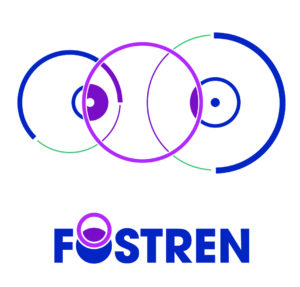Written by Deborah Aluh and JM Caldas de Almeida
What is your country’s stand on coercion reduction?
Portugal has been making concerted efforts to reduce the use of coercion in mental health care in the last 25 years. A new Mental Health Act (Law number 36) was passed in 1998, which established the principles of mental health policy, defined the rights of persons with mental disorders, and regulated involuntary treatment in accordance with a judicial model.
In accordance to this legislation, mental healthcare should be undertaken primarily at the community level and provided in the least restrictive environment possible, inpatient treatment should take place in general hospitals, and psychosocial rehabilitation preferably undertaken in residential facilities, day-centres and training and professional rehabilitation units, which are part of the community and adapted to the patient’s specific degree of autonomy.
Compulsory admission and involuntary treatment require a psychiatric expert review and a judge’s decision after a personal hearing of the patient. Criteria for involuntary admission and treatment are that a person is suffering from a serious mental disorder and by virtue of this condition represents a danger to him-or herself, or others, and refuses to submit to the necessary medical treatment, or that a person is suffering from a serious mental disorder and lacks the necessary capacity to evaluate the meaning and implications of consent and the absence of treatment could result in a significant deterioration of his or her condition. Compulsory out-patient treatment can be used instead of compulsory detention if it is deemed safe. The rate of involuntary admissions in Portugal is low compared the median of other European countries; 18, 2 per 100,000 in 2013.
A new National Mental Health Plan was initiated in 2008. It aimed to achieve equal access to quality care for everyone with mental disorders in the country, including those belonging to vulnerable groups. It also aimed to promote and protect the human rights of people with mental disorders, reduce the impact of illness and contribute to the promotion of mental health. The integration and community focus of mental healthcare and the reduction of stigma were additional objectives.
Further important steps were made in the last few years. A new legislation (Decree-Law No. 113), which elaborates the reorganization of the country’s mental health system, prioritizing community-based services with an intrinsic goal of increasing quality of psychiatric care and reducing coercion, was passed on 10th December 2021. A new mental health law that incorporates most of the principles of the UNCRPD is waiting to undergo public hearing before the second half of 2022. In this new law, the rights and duties currently enshrined in the Law have been reviewed and updated, in line with the instruments of European and international law that uphold them. Important innovations were added in relation to the rights to access quality health care, from prevention to rehabilitation; having their wishes and preferences respected, expressed at the moment or in advance, in the form of advance directives or through a health care attorney or representative; to see their empowerment and autonomy promoted, in the various aspects of their lives, with respect for their will, preferences, independence and privacy; and not being subjected to coercive measures, including isolation and physical or chemical means of containment.
At the same time, significant strides have been taken at the national level to raise awareness and push for the reduction of coercion in mental health services.
- Launch of a national database of involuntary admission and coercive practices.
- High level international seminar on implementation of the CRPD in mental health legislation and practice held in Lisbon.
- EEA Grants funded Mental health and human right project that encompassed
- Training of service users on mental health and human rights
- Training of mental health professionals on mental and human rights
- Training of student leaders on mental health and human rights
- WHO-Quality rights research in different regions of the country
What kind of research is happening in your country on this topic?
Researchers from Portugal have collaborated on international projects to contribute to the global literature on the use of coercion in mental health care, as well as collaborating at international level to provide evidence on effective interventions that reduce coercion (1–3). Furthermore, there have contributions from Portuguese researchers on the implications of the UNCRPD and its interpretation on the use of coercion in mental health services (4,5). At the national level, research has been conducted to describe the procedure for involuntary treatment(6), and to evaluate the factors that lead to compulsory admissions in the country (7,8).
There is ongoing research at the national level, to understand patient’s perception of coercion, staff attitudes towards coercion and to elaborate the contextual factors that influence the use of coercion. Also ongoing, is a qualitative study on mental health professionals’ opinions on strategies that could reduce coercion in the mental health services. Portugal is also highly represented in the FOSTREN sub group involved in comparing mental health legislation and policies related to coercion in European countries.
Why are you in the network? What would you like to achieve with it?
Reducing coercion in mental health care is one of the objectives of the new mental health legislation and policy in Portugal. By being part of FOSTREN, we hope to share and exchange information on innovative solutions to the problem of coercion in mental health services. We also look forward to fruitful collaborations with colleagues in other countries to advance current understanding of the problem.
Is there anything else that you want to share with us?
There have been several initiatives from Portugal in the recent past to increase the awareness on the human rights of people with mental health problems. The Mental Health Rights Film Festival, fostered by the Lisbon Institute of Global Mental Health, was a short film festival and international competition that focused on showcasing cinematographic works that deal with mental health issues in order to raise awareness of the rights of people with mental disorders. Several trainings on mental health and human rights have also been held for different stakeholders ranging from healthcare professionals, service users and young people. The Portuguese government made history as the first government to support the WHO Quality rights, and subsequent studies and trainings on Quality rights in Portugal.
References
1. Sashidharan SP, Saraceno B. Is psychiatry becoming more coercive? BMJ [Internet]. 2017 Jun 22 [cited 2022 Apr 30];357. Available from: https://www.bmj.com/content/357/bmj.j2904
2. A commentary on Manzano-Bort et al. (2021) “Experience of mental health nurses regarding mechanical restraint in patients with psychomotor agitation: A qualitative study.” 2021 [cited 2022 Apr 30]; Available from: https://doi.org/10.1111/jocn.16027.
3. Barbui C, Purgato M, Abdulmalik J, Caldas-de-Almeida JM, Eaton J, Gureje O, et al. Efficacy of interventions to reduce coercive treatment in mental health services: umbrella review of randomised evidence. Br J Psychiatry. 2020;
4. Colin Freeman M, Kolappa K, Miguel Caldas de Almeida J, Kleinman A, Makhashvili N, so Phakathi S, et al. Personal View Reversing hard won victories in the name of human rights: a critique of the General Comment on Article 12 of the UN Convention on the Rights of Persons with Disabilities. The Lancet Psychiatry [Internet]. 2015 [cited 2021 Aug 6];2:844–50. Available from: http://dx.doi.org/10.1016/
5. de Almeida JMC. The CRPD Article 12, the limits of reductionist approaches to complex issues and the necessary search for compromise. World Psychiatry [Internet]. 2019 Feb 1 [cited 2022 Mar 28];18(1):46. Available from: /pmc/articles/PMC6313226/
6. Almeida T, Molodynski A. Compulsory admission and involuntary treatment in Portugal. BJPsych Int. 2016 Feb;13(1):17–9.
7. Brissos S, Carita A, Vieira F. Compulsory admission to a Portuguese psychiatric hospital: retrospective study of 497 involuntary admissions. BMC Psychiatry 2007 71 [Internet]. 2007 Dec 19 [cited 2022 Apr 30];7(1):1–1. Available from: https://bmcpsychiatry.biomedcentral.com/articles/10.1186/1471-244X-7-S1-P2
8. Silva M, Antunes A, Cardoso G, Caldas-De-Almeida JM, Saraceno B. Factors Associated With Involuntary Psychiatric Hospitalization in Portugal. Preprint [Internet]. 2020 [cited 2021 Mar 4]; Available from: https://doi.org/10.21203/rs.3.rs-96290/v1

